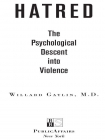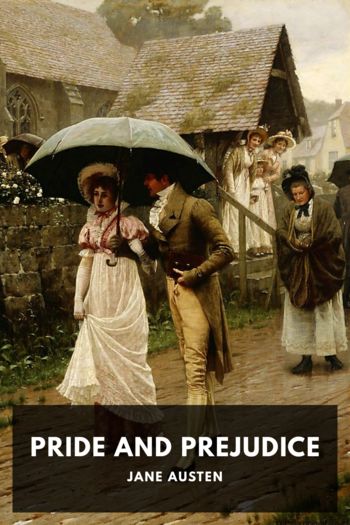Hatred by Willard Gaylin (best manga ereader txt) 📗

- Author: Willard Gaylin
Book online «Hatred by Willard Gaylin (best manga ereader txt) 📗». Author Willard Gaylin
This definition places a relationship at the heart of hatred. In this sense, the most precise comparison to hatred would be love. Here, too, the underlying feeling is profound, but it is only part of a unique engagement with another person. We need an object for our hatred or our love. Furthermore, as it would be inappropriate to define an hour or a daylong affinity as “love.” It would be equally inaccurate to label an ephemeral feeling of anger toward another as an example of hatred. Both hatred and love must be sustained over a significant period of time to fit the special definitions of these particular relationships. With love, at least, we can use the word “infatuation” to distinguish the rush of the feeling, that instant but fleeting passion, from the complexity of the relationship of love.
We may say we “love” Häagen Dazs ice cream, Louis Arm-strong, or gardening, but we do not “love” them, any more than we “hate” brussels sprouts, rap music, or body piercing. The use of love and hate in these situations trivializes the complexities of the hating (and loving) experience. Even when we colloquially use hatred with respect to more-profound ideas, people, or conditions—fascism, drug dealers, child porn—even when we direct hatred toward something that is in itself a serious problem—like bigotry or injustice—these usages of hatred still fall short of the complex definition of hatred I have offered.
Common usages of clinical terms establish a false community. Whenever a woman in the throes of a postpartum depression is tried for the murder of her child, the sympathy and understanding that might be offered her is mitigated by false comparisons. The understanding of her psychosis is adulterated by the fact that everybody in the jury has felt “depressed” at one time or another and they confuse their feelings of depression with the clinical experience. They all know they would not murder their child under the duress of feeling depressed. But like hatred, depression is more than a feeling. As a clinical entity, it bears no relationship to that which we all normally feel when we are blue and “feel depressed.” This common usage of the term “depression” diminishes the importance and the unique quality of the pathologic condition. The same is true of hatred. When we assume that at times we feel like a terrorist, we grant the terrorists a normalcy that trivializes a condition that threatens the civilized world.
Because of such usage, most readers will assume that they have experienced hatred, but I know they have not. We are not one with the terrorists. We do not experience that which they feel, nor are we likely to do that which they do. The hatred that requires a defined enemy—the hatred that seeks the humiliation and destruction of that enemy and takes joy in it—is blessedly a rare phenomenon. We must know that we are different from terrorists. In this respect it is imperative to distinguish between the more common feelings of prejudice and bigotry, and that of hatred.
Prejudice and Bigotry
Since many of us are all too aware of signs of prejudice within ourselves, we are often more “understanding” of hate crimes than we ought to be. We equate our prejudices with the hatred of those who commit such crimes. And although prejudice is a way station on the road to hatred, most of us will not travel to the bitter end of that road. What is more, before we can even consider mass hatred—group against group—these various terms must be distinguished, one from the other.
Prejudice is defined in the dictionary as “an adverse judgment or opinion formed beforehand or without knowledge or examination.” It means prejudging, not necessarily in a pejorative way. One might have a positive bias. Tell a daughter how beautiful she is or, worse, that she was the prettiest girl at the prom, and her response will be, “Oh, Dad, you’re so prejudiced.” And she is right. The power of love distorts perception to idealize the subject of our affections. I have a bias—“a preference or inclination that inhibits impartial judgment” in relation to those I love.
These days, the term “prejudice” is more often used when the negative attributes ascribed to a person by virtue of his or her being a member of a disdained or despised group are highlighted, or when we voice our feelings toward the pariah group itself. We are always prepared to judge members of such a group severely, and to assume negative behavior or characteristics prior to any evidence. For the purposes of this book, that will be the usage.
It may well be that prejudice against some group, any group—Jews and blacks being historically the most common—is an inevitable consequence of the need to identify with one specific group. I sense this to be true, since almost everyone I encounter exhibits some evidence of prejudice, although I am not yet convinced that in distinguishing “us” from “them” we need to demean “them.” The ubiquity of prejudice may be a natural consequence of idealizing one’s own. Since the idealization stops at the border of one’s family or group, the cold, objective eye reserved for the other perceives his inadequacy in contrast to the idealized version of one’s own.
Prejudice actually works toward it. We are likely to expend little emotion on the prejudiced group. We have eliminated those people from our universe of concern. Prejudice often results in a cool indifference—indifference to the sensibilities and even the suffering of those who do not count. Still, the most profound modern statement of the result of racial





Comments (0)